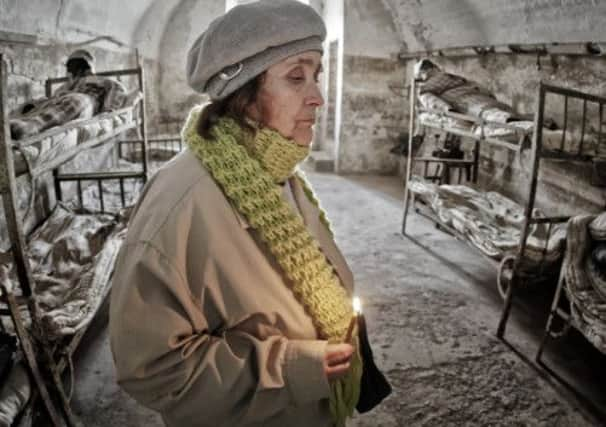Romania remembers victims of communist gulags


After decades of denial, details are emerging about the torment guards inflicted upon political prisoners in Romanian communist-era gulags, as part of a first small step toward holding them to account.
The names of 35 guards – now in their 80s or 90s – are to be handed to authorities next week for possible prosecution by a government institution tasked with investigating communist-era crimes.
Advertisement
Hide AdAdvertisement
Hide AdThe perpetrators have long been shielded by Romania’s establishment, whose ranks are filled with members of the former Securitate secret police.
However, the movement to expose Romanian gulag guards has a powerful champion in the Liberal Party, which is now part of the governing coalition.
Of Romania’s 617,000 political prisoners, 120,000 died in the gulags. The inmates included politicians, priests, peasants, writers, diplomats and children as young as 11.
About 2,800 survivors now see a glimmer of hope as the Institute for Investigating the Crimes of Communism and the Memory of the Romanian Exile begins looking into allegations against the 35 guards on the list.
The institute was founded by Liberal prime minister Calin Popescu Tariceanu in 2006. It is only since the party returned to government as a junior coalition partner last year that the institute started work, aided by a Liberal-led interior ministry that has provided names and addresses.
Like other former Warsaw Pact countries, Romania removed its top-level communists during the 1989 revolution, but less than a handful were punished after dictator Nicolae Ceausescu and his wife, Elena, were executed.
One of the prison guards who will be publicly named this month is Ion Ficior, dubbed by inmates “a human beast.”
“Ficior beat us every day with a wooden stick,” said former prisoner Ianos Mokar, adding that the guard terrorised inmates by “jumping over us on his white mare”.
Advertisement
Hide AdAdvertisement
Hide AdFicior denied he had beaten anyone. The 85-year-old said he tried to ensure that inmates got full rations by ordering kitchen workers to get the most out of potatoes by peeling as thinly as possible.
He claims all the prisoners under his command at the Periprava labour camp in eastern Romania were militiamen known as Legionnaires, who supported the Nazis during the Second World War.
They “deserved to stay in prison to feel what their crimes were like,” Ficior said.
He said the responsibility for the political prison system lay with Romania’s Communist leaders. “The great blame lies with those who gave the orders,” he said. “They are to blame.”